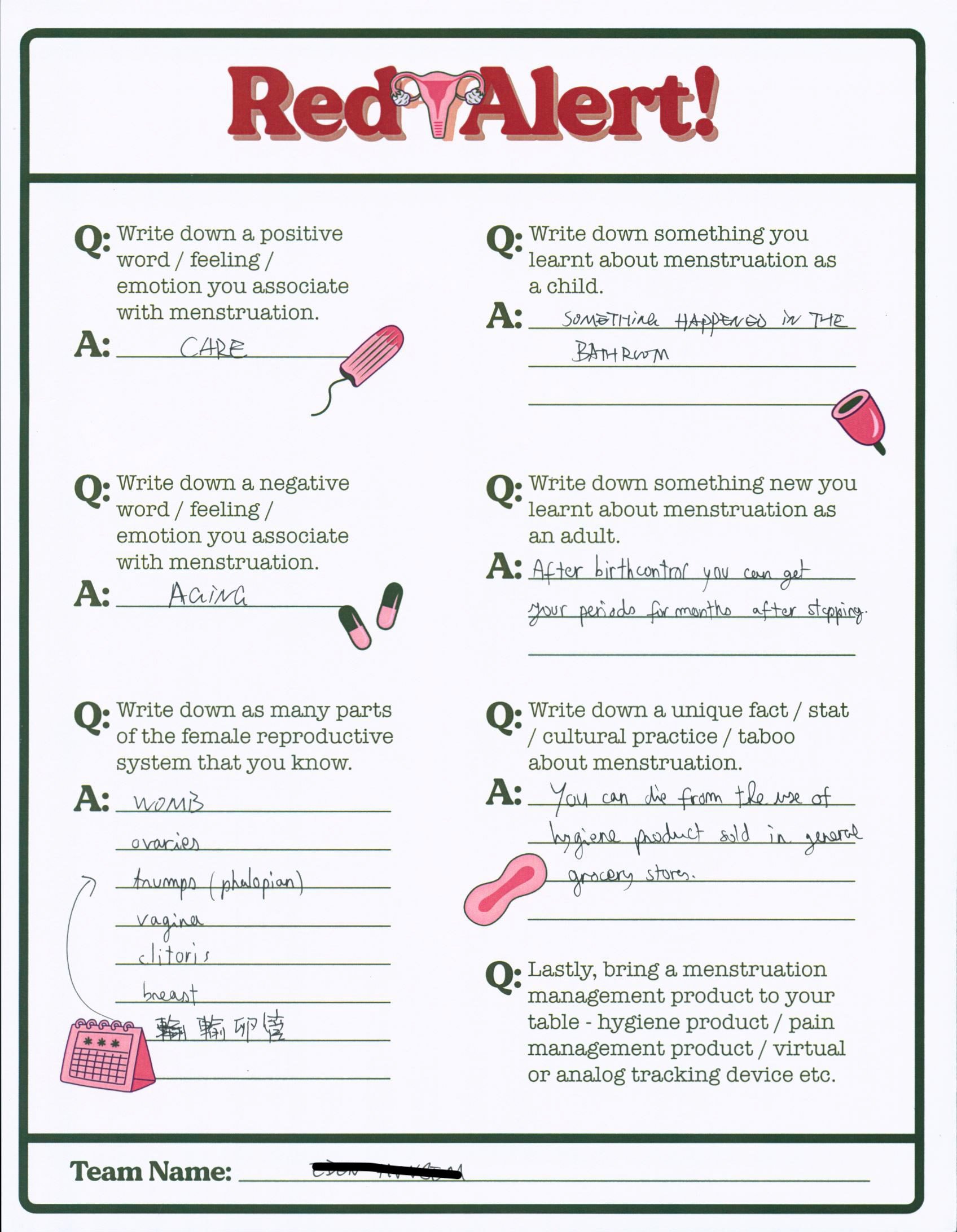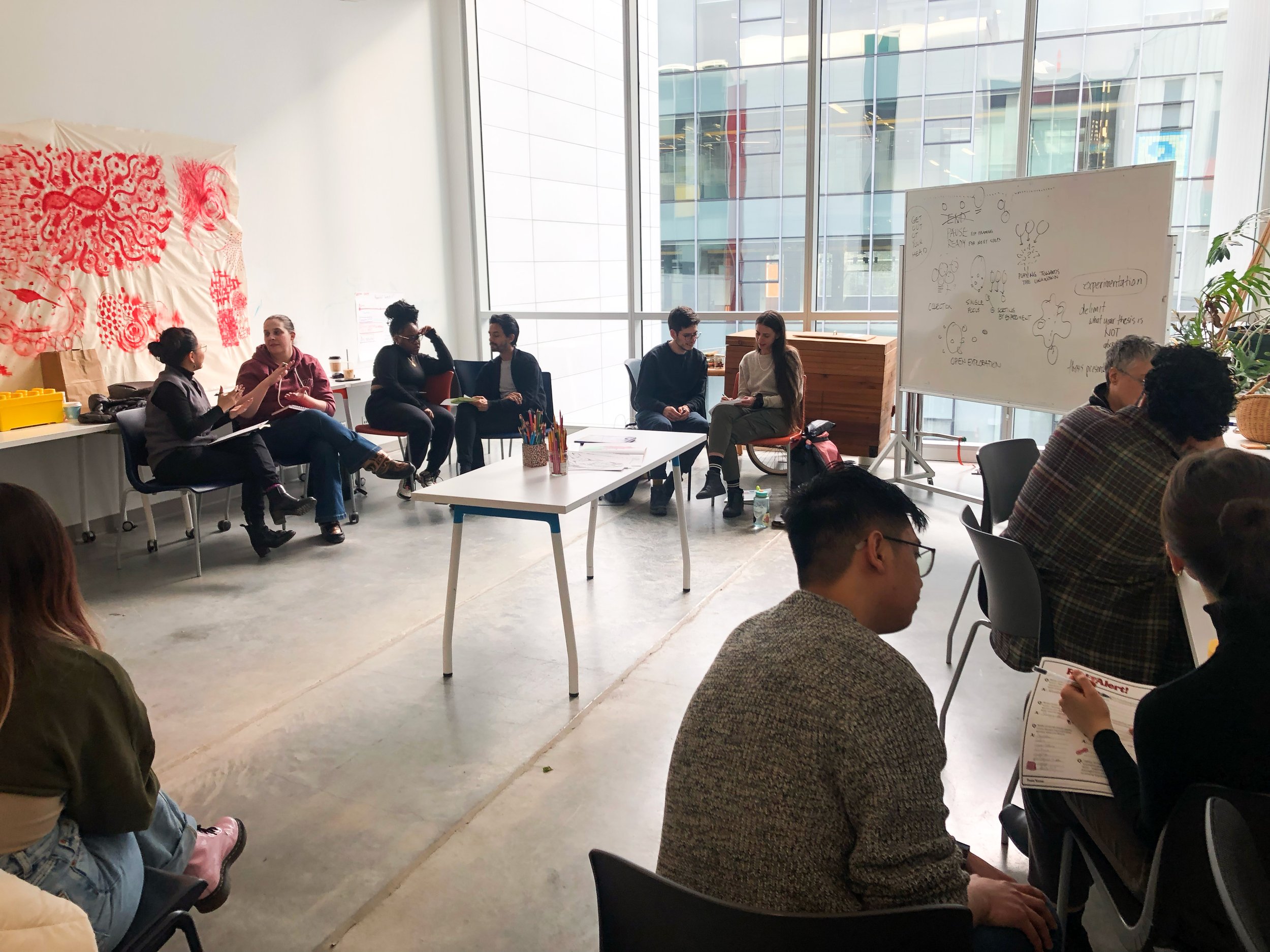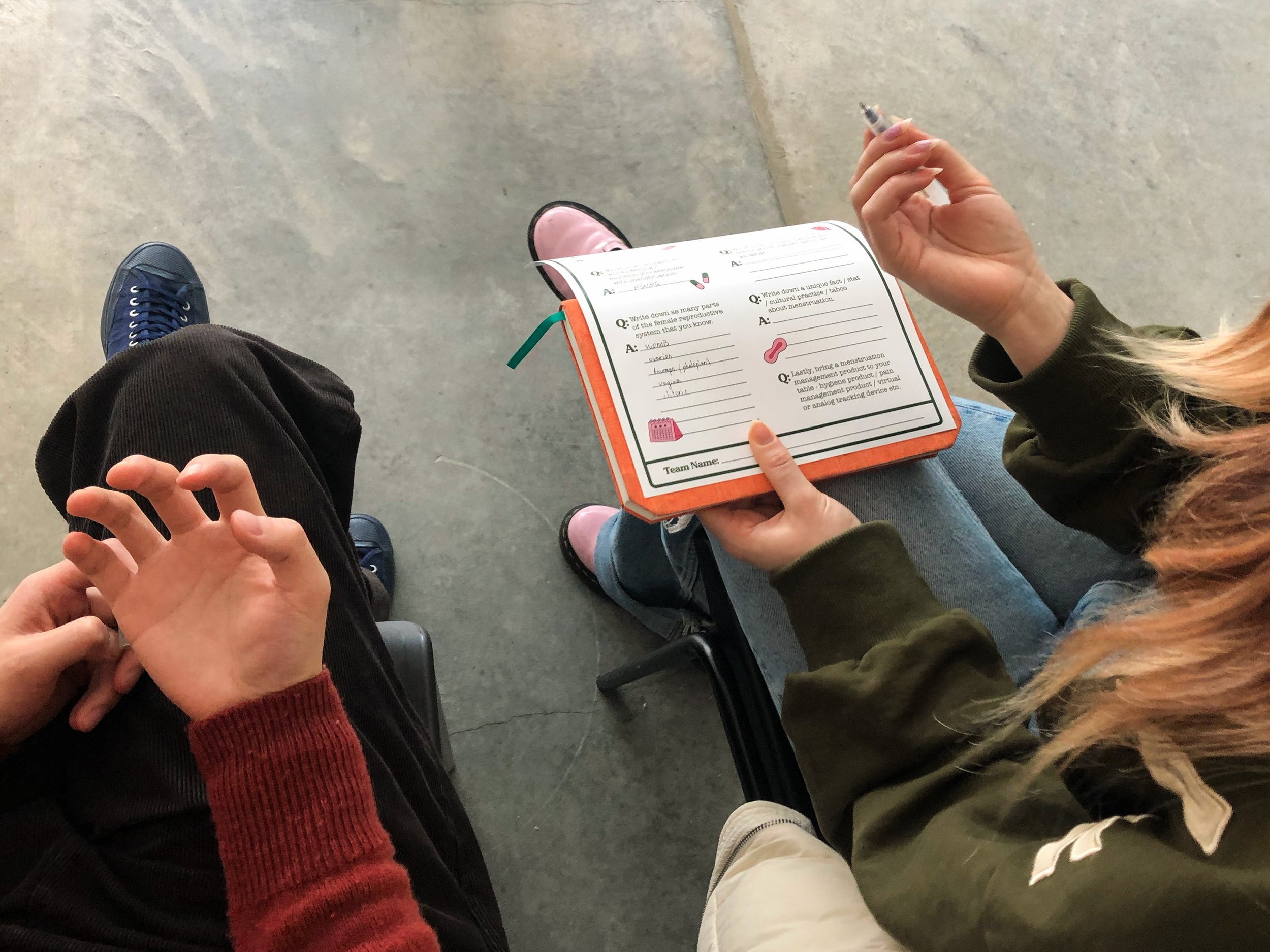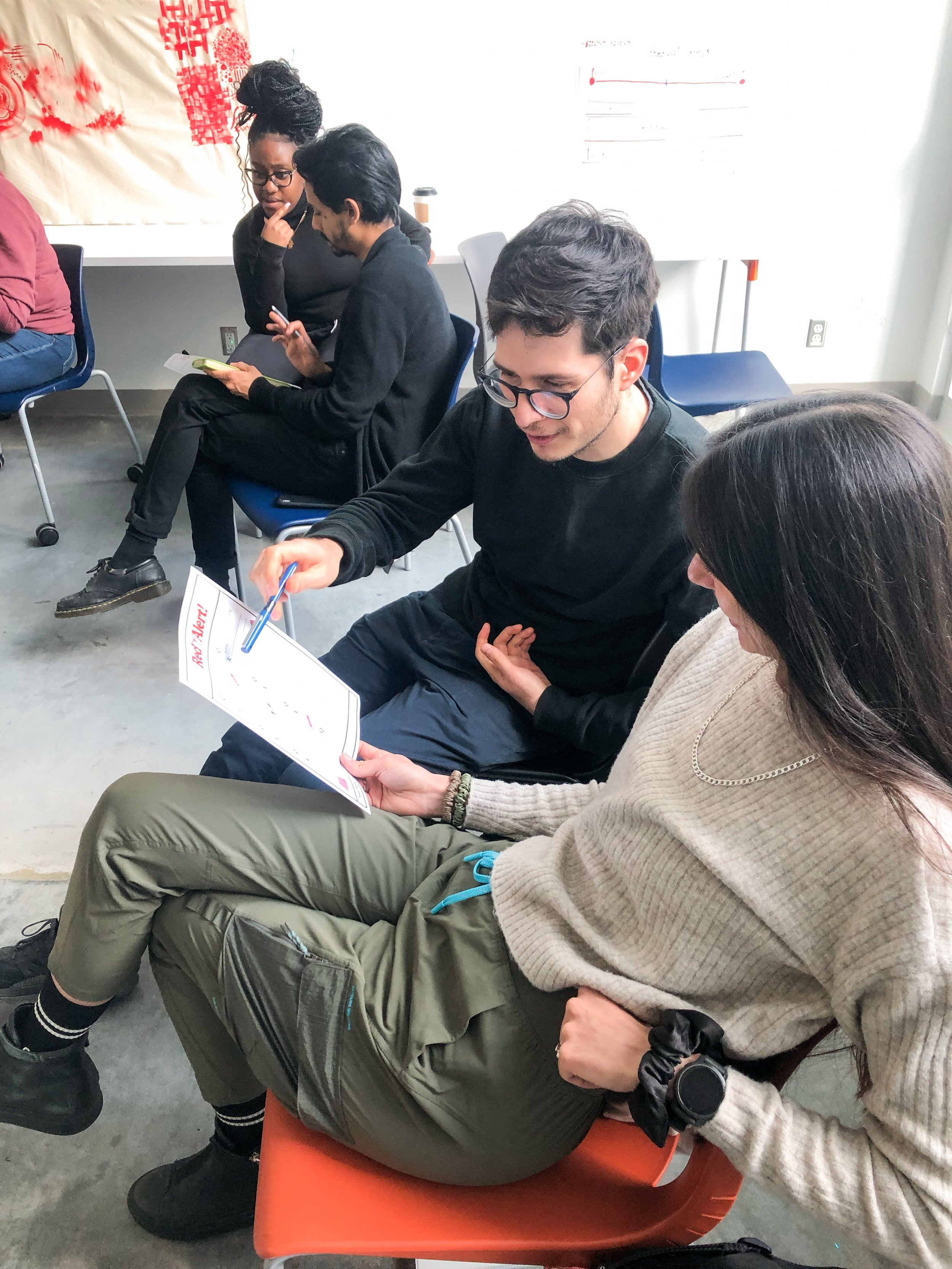QUIZ-STYLE PARTICIPATORY GAME / COMMUNICATION DESIGNRed Alert
Red Alert is a quiz-style game show conceptualised to cultivate an inclusive understanding of menstruation by bridging the dialogue between menstruators and non-menstruators. Driven by the values of empathy, awareness, playfulness, and sensitivity, the project acts as a medium to transform non-menstruators from passive members to active contributors in understanding menstruation. This project employs a creative and playful strategy to engage a diverse group in collaborative discussions on a traditionally uncomfortable subject like menstruation.
The game involved 14 participants, strategically divided into seven teams of two. Participants were encouraged to select their partners with the sole information that the quiz would revolve around menstruation knowledge, which resulted in six teams comprising one man and a woman each, and one team of two women.
Each team was equipped with a quiz card featuring seven open-ended prompts, designed as introspective questions probing participants’ existing knowledge of menstruation and women’s bodies.
Within a 15-minute timeframe, teams were encouraged to generate responses distinct from their counterparts, fostering a free exchange of knowledge, feelings, and observations without judgment.
The questions encompassed diverse aspects, ranging from emotional associations with menstruation to knowledge about the female reproductive system, and unique cultural practices or taboos.
At the end of the 15-minute timer, the quiz master (myself), assumed the role of orchestrating the ensuing proceedings. Each group shared their recorded answers in an anti-clockwise sequence, addressing each question on the card across seven rounds of sharing. Points were awarded to teams providing unique responses to prompts, fostering an element of friendly competition. In cases where multiple teams submitted similar responses to a given prompt, no points were allocated. The team amassing the highest point tally at the culmination of the final question emerged victorious, securing a small incentive to stimulate friendly competition.
The ambience throughout the game exuded enthusiasm, with teams immersed in spirited discussions and exchanges. Navigating the diverse cultural group of participants, I observed deep discussions and distinctive responses, particularly surrounding menstrual taboos. During the final sharing round, teams delved into personal narratives, revealing how lived experiences and incidents informed their knowledge, thereby enriching the sharing process.
Team ResponseS






An analysis of responses to the set of questions reveals several prominent themes. Regarding emotions linked to menstruation, positive sentiments include feelings of care, relief, and strength, while negative associations encapsulate themes of ageing, embarrassment, and melancholy.
Childhood knowledge is centred on basic biological aspects, associating periods with secrecy and lack of cleanliness. In adulthood, respondents present diverse insights, encompassing cultural and emotional dimensions of menstruation, the influence of stress, and the variation in menstrual education across cultures. Knowledge about the female reproductive system varies, with commonalities such as ovaries, uterus, and vagina among distinctive interpretations like the mystery gland and amniotic fluid. Unique facts highlight cultural practices and taboos, ranging from the celebration of “period parties” to restrictions on certain activities during menstruation, epitomising the diversity and intricacy of perceptions surrounding this natural bodily process.
The game’s culmination harboured the hope that participants had acquired fresh insights into menstruation and garnered a renewed perspective on the intricacies of the female body. A departure from prior research projects exclusive to menstruators, the inclusion of non-menstruators highlights the potential of unified community engagement in eliciting meaningful knowledge. The utilisation of playful methodologies to broach serious subjects facilitated an environment of comfort and enjoyment, enabling candid self-expression and knowledge-sharing devoid of judgment. Furthermore, the project substantiates how information and education about menstruation can be disseminated in institutional spaces through engaging and creative ways. Lastly, it underscores the significance of including non-menstruators in the design process, elucidating valuable insights into the challenges impeding effective menstruation communication.










